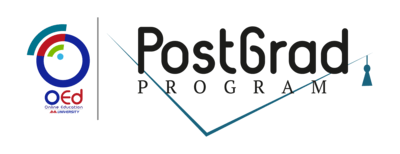Policy analysis is a rewarding career path that can have a tangible impact on society. Policy analysts play a crucial role in shaping public policies by researching important issues, analyzing current policies, providing evidence-based recommendations, and raising public awareness.
If this sounds like a career path you’d pursue, keep reading to better understand what policy analysts do, the skills you need for this job, and how to be a policy analyst.

What does a Policy Analyst do?
A policy analyst is a professional responsible for researching, analyzing, and evaluating public policies to inform or influence the decision-making processes of government bodies or organizations. These professionals collect data, assess policy implications, and develop recommendations to address societal challenges and promote effective governance.
Their work often revolves around emerging issues, forecasting trends, and evaluating the impact of policy interventions on individuals, communities, and the economy. Policy analysts work across various sectors, including consulting firms, think tanks, and some of the highest paying industries. The most common industries for policy analysts include:
- Government
- Education
- Healthcare and Pharmaceuticals
- Non-profit Organizations
- Political Action Committees
- Law
Policy analysts play a vital role in their organizations. Given this, how much do policy analysts earn?
According to Glassdoor, policy analysts in the Philippines receive monthly salaries ranging from Php 35,000 to Php 70,000.
Skills Needed by Policy Analysts
Policy analysts often focus their careers on a niche industry, so they need specialized or technical knowledge. Besides those, successful policy analysts possess a diverse set of skills to help them navigate the complexities of their advocacies. Here are key skills you should learn to become a policy analyst:
Analytical skills
Policy analysts need strong analytical skills to interpret complex data, identify patterns or trends, and evaluate the potential impact of policy options.

Research Skills
These professionals regularly conduct comprehensive research to gather relevant information, analyze existing policies, and identify best practices. They should be able to create and execute an effective research design.
Communication Skills
Policy analysts need strong verbal and written communication skills because they need to articulate their findings, present recommendations, and engage with stakeholders and, sometimes, the public. They should be capable of convincing their audience and defend their stand against criticism or opposition.

Problem-Solving Skills
Policy analysts regularly engage with new social issues and develop practical solutions to complex policy problems. They need problem-solving skills to help them think of creative solutions to address societal challenges.
Quantitative Skills
This is another relevant skill related to research. Policy analysts must be proficient in quantitative analysis, including statistical methods and data visualizations. These skills are valuable for conducting rigorous policy research and impact assessments.
Policy Knowledge
Policy analysts need a solid understanding of political processes, public administration, and policy frameworks so they can navigate the policy landscape and advocate better for the solutions they support.
How To Become a Policy Analyst
Policy analysis is a highly specialized career, and it often takes years of experience before professionals get to work in this position. But don’t be discouraged. Here are the steps you need to take to become a policy analyst:

Complete Your Education
Most policy analyst positions require at least a college education. Policy analyst is one of the careers you can pursue in Public Administration, Political Science, Economics, Sociology, or another social science course.
These courses develop analytical, research, and communication skills that are at the heart of policy analysis.
Gain Relevant Work Experience
Policy analysis is not an entry-level position. So, upon graduation, you need to take on an internship, volunteer opportunity, or entry-level position in a government agency, non-profit organization, or research institution. These opportunities can provide you with valuable experience in policy analysis and advocacy.
While you work in entry-level positions, seek opportunities to work on projects related to your areas of interest and build a strong foundation in policy research and development. With the right experience, you can fast-track your journey to working as a policy analyst.
Gain Relevant Skills
Be proactive in developing your skills in research, data analysis, and policy evaluation through practical experience and professional development opportunities.
Take advantage of workshops, online courses, and certifications to enhance your expertise in specific areas relevant to policy analysis. For example, you can explore quantitative analysis, program evaluation, risk management, and policy implementation.
Get a Master’s Degree
While it’s not always required, a master’s degree in a relevant field can enhance your credentials and deepen your knowledge of policy analysis and/or your niche.
Look for postgraduate programs that offer specialized coursework and research opportunities rooted in practical experience. A program like our Master’s in Public Administration online will equip you with practical knowledge and experience to help you become a policy analyst while you continue working.

Build Your Professional Network
Networking is essential for advancing your career in policy analysis. It’s important to build relationships with peers, mentors, as well as industry leaders. They can connect you with other professionals, provide job opportunities, and exchange ideas on relevant topics.
Attend conferences, seminars, networking events, as well as join professional organizations, online forums, and social media groups to stay in the loop within your industry.
Apply for a Policy Analyst Position
Once you have gained relevant education and experience, you can start exploring job opportunities as a policy analyst. Tailor your resume to highlight your skills, qualifications, and accomplishments relevant to policy analysis. Familiarize yourself with what policy analysts do with your target employer, such as their policy priorities, and highlight your passion for that advocacy.
With the right skills and education, you are sure to find employment opportunities as a policy analyst without a problem.
Become a Policy Analyst with Postgrad
Policy analysts play a vital role in their respective organizations and in society in general. These professionals need a combination of specialized knowledge stemming from their education and experience. It’s not easy how to become a policy analyst, but it’s certainly doable if you invest in your professional development.
Embark on a fulfilling journey toward becoming a policy analyst with Online Postgrad and proceed to shape public policies for the betterment of society.
Contact us today to learn more about our programs.
